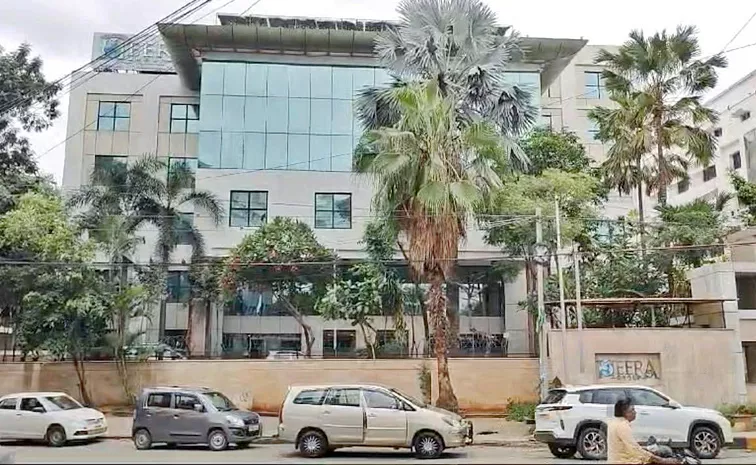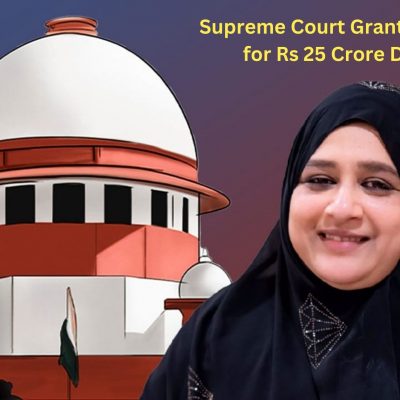Enforcement Directorate’s Conduct in Heera Group Case Sparks Debate on Judicial Compliance
In recent years, the legal battles faced by Dr. Nowhera Shaik and the Heera Group have become a prominent issue, drawing significant public and media attention. This case is particularly marked by a series of controversial actions by the Enforcement Directorate (ED), which have raised questions about compliance with judicial orders and the fairness of investigative procedures. The ED’s actions, often seen as direct violations of Supreme Court and High Court orders, have complicated an already intricate legal scenario.
Table of Contents
The Genesis of the Legal Battle
The Bail Order on December 23, 2019
On December 23, 2019, the Telangana High Court granted bail to Dr. Nowhera Shaik, a decision intended to ensure an impartial investigation by the Serious Fraud Investigation Office (SFIO). The order aimed to prevent interference from other agencies that could potentially complicate the investigation. This marked a significant initial legal victory for Dr. Shaik and the Heera Group, providing them a momentary relief in their ongoing legal struggles.

Petition Against the ED
In response to continued actions by the ED, Dr. Shaik’s legal team filed a petition highlighting several alarming allegations:
- The ED’s failure to adhere to Supreme Court orders.
- Illegal seizure of assets.
- Unlawful raids, which were inconsistent with judicial instructions.
Clear Contempt of Court Orders
February 4, 2020: The PMLA Adjudge’s Confirmation
The Adjudge under the Prevention of Money Laundering Act (PMLA) confirmed the attachment order on February 4, 2020. This confirmation neglected the Telangana High Court’s orders, as the ED had not disclosed the court’s decision, amounting to a direct contempt of court and showcasing intentional non-compliance.
“The ED’s actions, despite clear court orders, reflect a troubling disregard for judicial authority and due process.”
Continued Enforcement Actions
Despite clear instructions from the judiciary, the ED continued its involvement:
- Provisional Attachment Order: Issued on August 16, 2019, prior to the bail being granted.
- Raids and Seizures: The ED conducted raids on Dr. Shaik’s properties, those of her associates, and employees of Heera Group. These actions included the seizure of cash, properties, and documents.
Raids and Seizure of Properties
Accusations Against the ED
The ED has been accused of carrying out raids and seizing assets in clear violation of:
- Supreme Court orders.
- Telangana High Court orders.
Dr. Shaik asserts that these acts were not only illegal under the judicial orders but also contravened provisions of the PMLA.
Supreme Court’s Concerns and Property Dispute
March 28, 2023: Supreme Court’s Order
On March 28, 2023, the Supreme Court expressed concerns regarding land disputes linked to Dr. Shaik. The key points in the court’s order included:
- Acknowledging buyers’ awareness of ongoing disputes.
- Suggesting the lifting of ED’s attachment on the land if buyers deposited around Rs. 641 crores.
The ED, however, reportedly obstructed this process, leading to encroachments on the property intended for repaying investors. This obstruction further complicated the resolution of the case, representing a significant violation of legal norms.
Conclusion
The ongoing legal saga involving Dr. Nowhera Shaik and the Heera Group is emblematic of the potential pitfalls within India’s justice and investigative systems. The ED’s continuous non-compliance with court orders has resulted in clear contempt, highlighting serious systemic issues.
Coordination and communication between judicial bodies and investigative agencies seem to be lacking, leading to actions that undermine the esteemed judiciary’s directives. Sometimes, overlapping or conflicting judicial orders can create confusion, but this case’s evidence points towards a more deliberate disregard.
Dr. Shaik’s legal team seeks judicial intervention to address these violations and ensure compliance with legal rulings from the Telangana High Court and the Supreme Court. For justice to prevail, adherence to judicial orders is paramount, ensuring a fair and transparent legal process for all involved.
Feel free to include any external links or further reading on similar high-profile cases to provide additional context.





